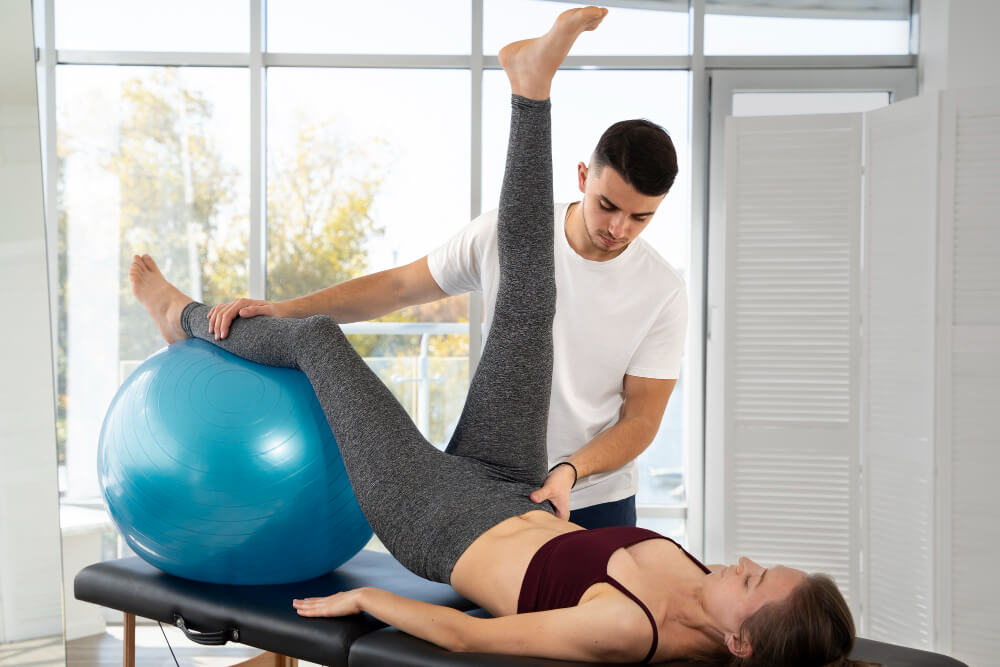Bounce Back from Injury Stronger: Expert Orthopedic Care for Active Individuals
For those who lead active lives, participating in sports offers a multitude of benefits – physical fitness, mental well-being, a sense of community. But even the most dedicated athletes can find themselves sidelined by an unexpected sports injury. When an injury disrupts your active routine, getting the right care quickly is crucial. Here’s where orthopedic surgeons, specialists in the musculoskeletal system, come into play. This article explores the world of sports injuries and how orthopedic care can help you bounce back stronger.
The Active Life and Sports Injuries: A Common Occurrence
Maintaining an active lifestyle is essential for overall health and well-being. Participating in sports offers a multitude of benefits, including:
- Improved cardiovascular health
- Stronger muscles and bones
- Weight management
- Stress reduction
- Enhanced mood and self-esteem
- Social interaction and teamwork
However, the pursuit of athletic excellence comes with a potential downside: the risk of sports injuries. These injuries can range from minor sprains and strains to more serious fractures and ligament tears. The specific types of injuries vary depending on the sport, training techniques, and individual risk factors.
Some common sports injuries include:
- Ligament Sprains and Tears: Injuries to the ligaments (fibrous tissues connecting bones) can occur due to a sudden twisting or stretching motion. Sprains are mild tears, while complete tears may require surgery.
- Muscle Strains and Tears: Overuse or improper technique can lead to muscle strains (microscopic tears) or complete muscle tears.
- Tendonitis and Bursitis: Inflammation of tendons (tissues connecting muscle to bone) or bursae (fluid-filled sacs cushioning joints) can cause pain and tenderness.
- Fractures: Broken bones can occur due to falls, collisions, or repetitive stress.
- Overuse Injuries: Repetitive stress on specific muscles, tendons, or joints can lead to pain and inflammation, such as shin splints in runners or rotator cuff problems in athletes throwing overhead.
Don’t Ignore the Signs: When to See an Orthopedic Specialist
While some minor sports injuries may heal on their rest with basic self-care measures, there are situations where seeking professional help from an orthopedic surgeon is crucial. Here are some signs that indicate a visit to the doctor is necessary:
- Severe pain or swelling: Pain that is severe, persistent, or worsens with activity needs proper evaluation.
- Deformity or instability: If the injured area appears visibly deformed or feels unstable when bearing weight, a doctor’s evaluation is crucial.
- Limited range of motion: A significant loss of movement in the affected joint needs to be addressed by a specialist.
- Neuropathy (numbness, tingling): Numbness or tingling in the injured area can indicate nerve damage and requires medical attention.
- Loss of consciousness or confusion: If a head injury occurred during the sports activity, seeking immediate medical attention is critical.
Ignoring a sports injury can lead to complications like chronic pain, joint instability, and even permanent damage. Early diagnosis and appropriate treatment by an orthopedic surgeon can help you heal faster, prevent complications, and get back to enjoying your activities.
The Role of Orthopedic Surgeons in Sports Medicine
Orthopedic surgeons are medical doctors with specialized training in the diagnosis, treatment, and rehabilitation of musculoskeletal conditions, including sports injuries. They possess a deep understanding of the anatomy and function of the musculoskeletal system, allowing them to accurately diagnose the injured structures.
Here’s how orthopedic surgeons can help you recover from a sports injury:
- Comprehensive Evaluation: They will perform a detailed physical examination, review your medical history, and may order imaging tests (X-rays, MRIs, ultrasounds) to pinpoint the exact nature and severity of the injury.
- Personalized Treatment Plan: Based on the diagnosis, your orthopedic surgeon will develop a customized treatment plan that may include:
- Non-surgical options: Rest, ice, compression, elevation (RICE protocol), physical therapy, medication (pain relievers, anti-inflammatory drugs), bracing or splinting.
- Surgical intervention: In some cases, surgery may be necessary to repair torn ligaments, address fractures, or remove damaged tissue.
- Rehabilitation: Following surgery or non-surgical treatment, a thorough rehabilitation program prescribed by a physical therapist is crucial for regaining strength, flexibility, and full function.
Working Together: Keys to a Successful Recovery
A successful recovery from a sports injury involves a collaborative effort between you, your orthopedic surgeon, and other healthcare professionals like physical therapists. Here are some key aspects to keep in mind:
- Open Communication: Communicate openly with your doctor regarding your injury, symptoms, and recovery goals.


